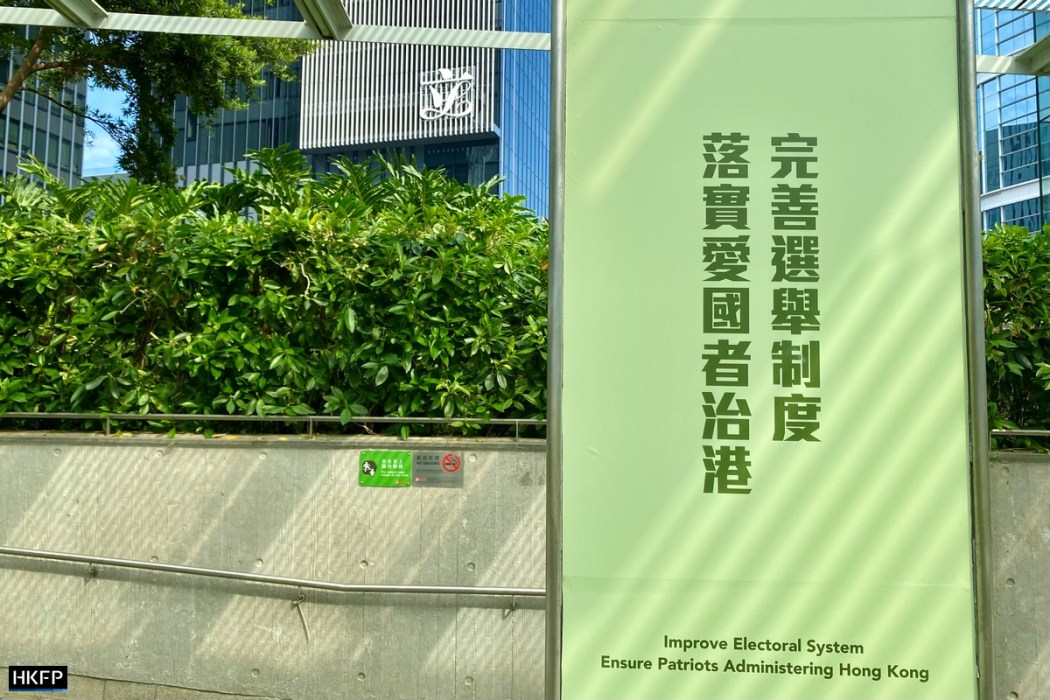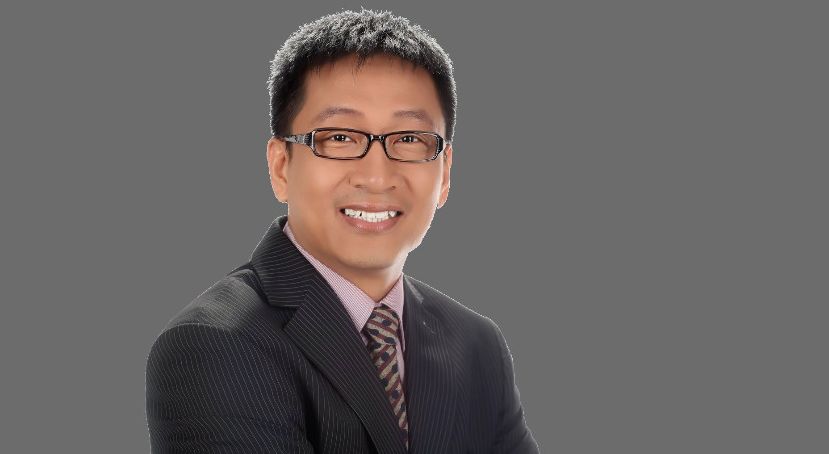Candidates running in Hong Kong’s legislative election have clashed over the topic of providing amnesty to protesters jailed over charges linked to the 2019 protests and unrest.
Hopefuls self-declaring as “non-pro-establishment” were also questioned about their political affiliation, with one candidate branded a “political chameleon” by his opponent.

Now News and RTHK held two election forums respectively on Monday for those standing in the Hong Kong Island East and New Territories North East constituencies.
Jason Poon, one of the four candidates in the Hong Kong Island East constituency, was asked about one of his campaign promises, where he pushed for the use of Article 48 of the Basic Law. The article empowers the Chief Executive to pardon those who committed mild offences and were remorseful.
Marcus Liu from the New People’s Party told Poon to “stop lying.”
“Stop lying to the youngsters, there’s no such thing as amnesty, according to Article 48(12) of the Basic Law clearly states that there’s only pardoning, and it is only used with offenders when they facilitate the crackdown on crime,” said Liu.
Article 48(12) states that the Chief Executive has the power “to pardon persons convicted of criminal offences or commute their penalties.” The legislation does not specify any conditions where the power can be used.
The same topic also came up in the RTHK forum, where Gary Chan from the DAB said that if “offenders during black violence” were pardoned, “where will Hong Kong’s rule of law come from?”
Nelson Wong – a former member of the Democratic Party and ex-lawmaker, said that his opponent Dominic Lee, of the New People’s Party, was using the national security law to “denounce” those who do not share his views.

The national security law, enacted in June last year, criminalised subversion, secession, collusion with foreign forces and terrorist acts, which were broadly defined to include disruption to transport and other infrastructure.
‘Political chameleon’
Both forums also had a section where candidates were asked to pick a gift for one of their opponents. Poon and Wong, who claim to be non-pro-establishment candidates, were criticised for not being able to gain the support of the pro-democracy camp.
Stanley Ng from the Hong Kong Federation of Trade Unions said his “gift” to Poon was a picture of a chameleon, and said that he was a “political chameleon” and an opportunist.

In turn, Poon presented Ng with a picture of Kowloon’s iconic Lion Rock that he drew, and said that he hoped Ng “can remember that the spirit of Lion Rock – the spirit of perseverance in times of adversity is the inherent right of Hong Kong people that cannot be deprived.”
Wong, in the RTHK forum, was given tea by Lee, who told Wong to make lemon tea after he failed to gain support from the pro-democracy camp. Lemons represent rejection in Chinese.
“When he was seeking support from pan-democratic district councillors, he was said to be someone who was not on the same path, and was criticised as shameless – [district councillors] even gave him a lot of lemons,” said Lee.
“There is a saying in English: when life gives you lemons, make lemonade, now that he has so many lemons, I am giving him a cup to tea, to make a cup of lemon tea.”
In March, 2021, Beijing passed legislation to ensure “patriots” govern Hong Kong. The move reduced democratic representation in the legislature, tightened control of elections and introduced a pro-Beijing vetting panel to select candidates. The Hong Kong government said the overhaul would ensure the city’s stability and prosperity. But the changes also prompted international condemnation, as it makes it near-impossible for pro-democracy candidates to stand.

- Districts included: Eastern District and Wan Chai District
- Projected population as at June 2021: 718,600
- Number of registered voters: 424,849
Candidates:
- Edward Leung Hei: Leung joined the pro-Beijing DAB in 2017. He has never run in district or legislative elections previously. He is the CEO of a development group with businesses across Hong Kong and the mainland.
- Marcus Liu Tin-shing: Liu is running for the pro-Beijing New People’s Party after joining in May 2020. He was the vice-chair of self-declared “centrist” party Third Side until 2016. He ran as an independent in the 2016 LegCo election and 2019 district council election but lost on both occasions.
- Stanley Ng Chau-pei: Ng joined the pro-Beijing Federation of Trade Unions in 1998, becoming chair in 2009 and president in 2018. He is a former part-time consultant for the government’s Central Policy Unit, an advisory body for the Chief Executive.
- Jason Poon Chuk-hung: Poon was the whistle-blower in the MTR Hung Hom project scandal in 2018. He ran and lost in the district council election in 2011. He says he does not belong to either the “pro-establishment” or “non-establishment” camp.
New Territories North East

- Districts included: Tai Po District and the western part of Sha Tin
- Projected population as at June 2021: 775,100
- Number of registered voters: 477,742
Candidates:
- Dominic Lee Tsz-king: Lee is a representative of the pro-Beijing New People’s Party.
- Nelson Wong Sing-chi: Wong a former Democratic Party member who is running as an independent.
- Gary Chan Hak-kan: Chan is a member of the pro-Beijing DAB.
- Allan Wong Wing-ho: Wong is a candidate from the “non-pro-establishment” think tank Path of Democracy.
More about Beijing’s election overhaul – click to view
In March, 2021, Beijing passed legislation to ensure “patriots” govern Hong Kong. The move reduced democratic representation in the legislature, tightened control of elections and introduced a pro-Beijing vetting panel to select candidates. The Hong Kong government said the overhaul would ensure the city’s stability and prosperity. But the changes also prompted international condemnation, as it makes it near-impossible for pro-democracy candidates to stand.
Where are Hong Kong’s opposition figures? – click to view
Major pan-democracy groups have not put forward any candidates following the Beijing-led overhaul. Most of the city’s opposition figures remain behind bars, are abroad in self-exile, have quit politics or are barred from running.
Support HKFP | Policies & Ethics | Error/typo? | Contact Us | Newsletter | Transparency & Annual Report | Apps
Help safeguard press freedom & keep HKFP free for all readers by supporting our team

LATEST FROM HKFP
HKFP has an impartial stance, transparent funding, and balanced coverage guided by an Ethics Code and Corrections Policy.
Support press freedom & help us surpass 1,000 monthly Patrons: 100% independent, governed by an ethics code & not-for-profit.










